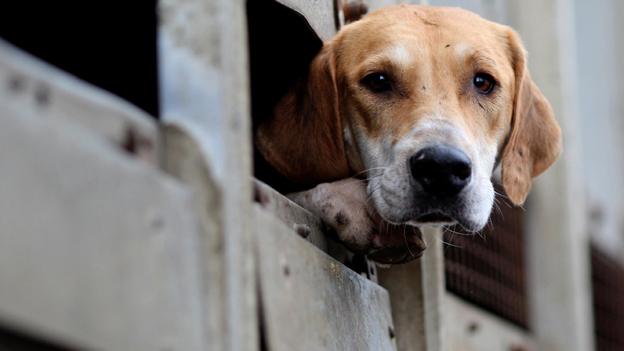Dog detectives: On patrol with the emergency services' four-legged recruits
- Published
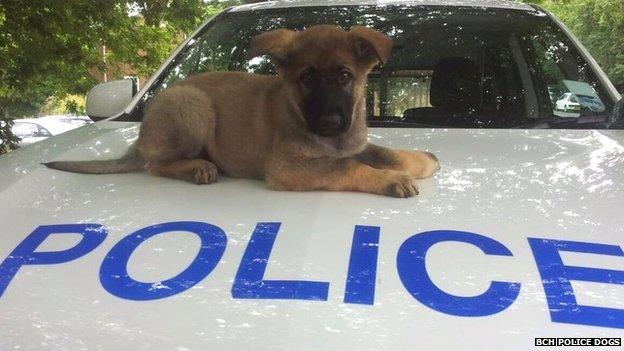
Blade is the latest recruit to the region's joint police dog unit
What will a dog do to get hold of its favourite toy? Chase a criminal? Sniff out drugs or firearms? Rescue someone trapped in the rubble of a collapsed building?
For the hundreds of dogs employed by the emergency services in the UK, the simple reward of a tennis ball is a powerful incentive, and one that can help turn a pet pooch into a super-sleuth.
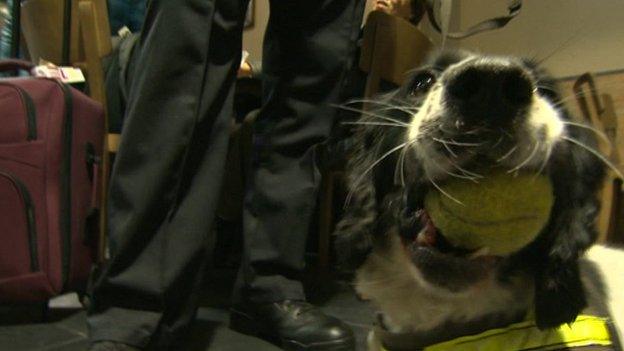
Luton Airport explosives sniffer dog Diesel gets a tennis ball if he finds a substance
Despite working in the high-pressure world of drugs and explosives, one of the most important qualities on the police canine's CV is playfulness.
The tennis ball is the reward of choice for the dozens of dogs who have carved out a career with the eastern region's emergency services.
Darcy, a 10-year-old border collie with Essex County Fire and Rescue Service is trained to locate people trapped in rubble.
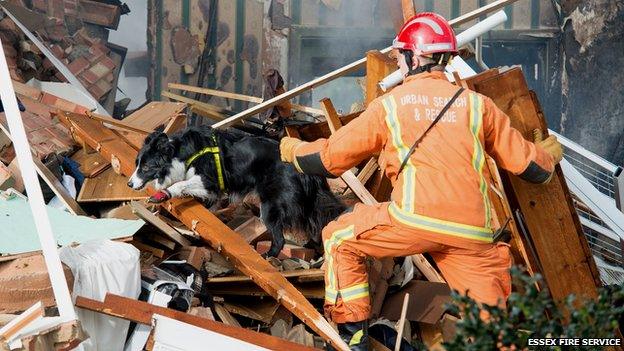
Darcy and handler John Ball searching rubble following an explosion in Clacton in February 2014
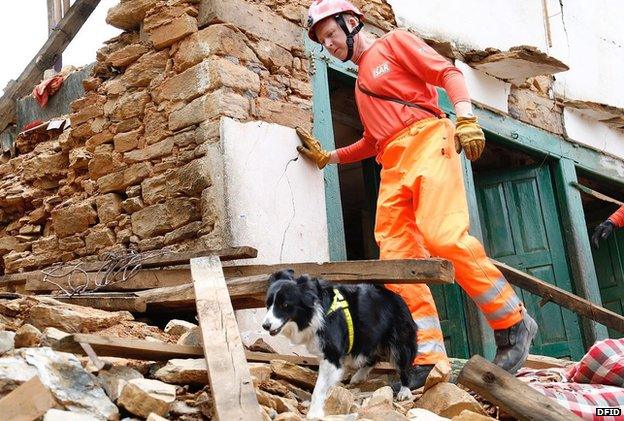
Darcy and Mr Ball were part of a UK team helping after the Nepal earthquake
Working alongside eight-year-old spaniel Kirby, both have been trained for this task since they were puppies.
A training programme involving "praise and reward" ensures every mission is a game of hide and seek.
Darcy's handler John Ball chose her from a litter because of her "toy drive" - she is both playful and possessive when it comes to her toys.
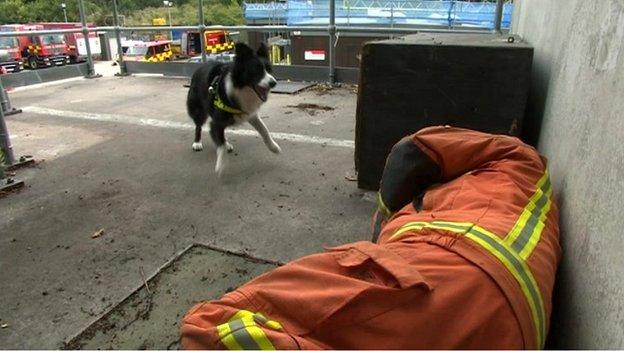
Darcy will bark if she finds a survivor
Initially her toys were hidden and she had to find them. Then Mr Ball would hide with the toy, and Darcy would sniff him out and bark when she found him.
Looking for a survivor in rubble is, to Darcy, like looking for a person hiding from her.
Her finely-tuned nose and desire for a tennis ball have taken Darcy from searching through the rubble of two homes after a gas explosion in Clacton, to looking for survivors following the Nepal earthquake on 25 April.
Darcy, handler Mr Ball and five other Essex firefighters spent nine days in Kathmandu and Chautara as part of the UK International Search and Rescue team deployed there by the government.
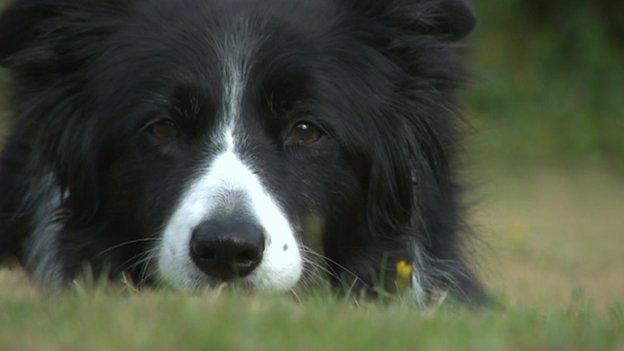
Darcy's handler says he considers her part of the family
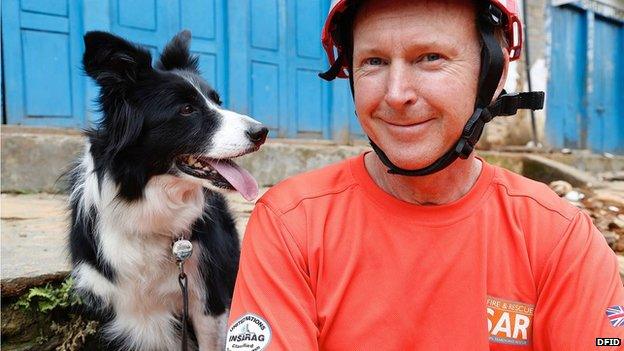
Darcy and John Ball in Chautara after the Nepal earthquake
Darcy was sent into the rubble to search for survivors.
Initially one dog is sent into a building. Handlers listen for the tell-tale barking, which then has to be verified by a second dog.
"We didn't find anyone but were able to provide closure for people and prevent searches taking place in potentially dangerous building where there is no-one trapped," Mr Ball said.
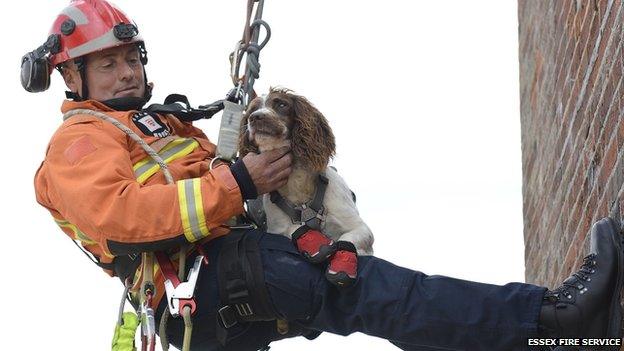
Kirby has learned to abseil with handler Graham Currie to reach inaccessible sites
Darcy and other rescue dogs sent abroad do not need to be quarantined on return as they are fully-inoculated and stay with their handlers the entire time.
Closer to home, Darcy and Kirby keep up their training in a building constructed at their Colchester base intended to simulate some of the situations the dogs might encounter searching in collapsed structures.
One of the fire service's dog handlers, Graham Currie, explains how Kirby does his work
Their workwear includes boots to protect their paws from debris and bells to alert their handler to their exact location.
Darcy's handler says although she is a focused, working dog, he still considers her part of the family - a pet as well as a fellow officer.
Because dogs' scent receptors are thousands of times more sensitive than humans', it makes their noses one of the most effective crime-cracking tools around.
Billy is one of more than 40 police dogs working with officers across Bedfordshire, Cambridgeshire and Hertfordshire.
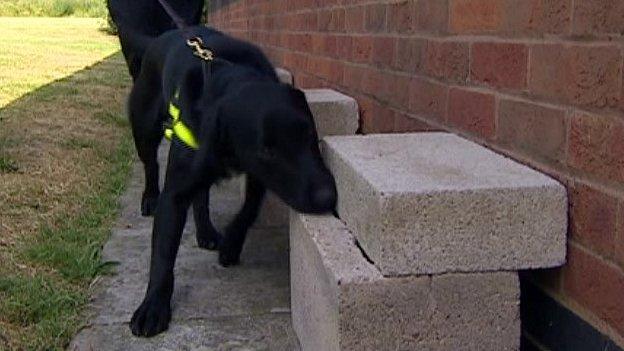
Billy is being trained to sniff out Euros hidden inside one of these concrete blocks
The two-year-old ex-rescue centre Labrador-cross is trained to sniff out hidden contraband including drugs, guns, ammunition and smuggled Euros.
PC Jason Keir explains: "All the different denominations use a different ink, so they do smell differently."
He gets to chase after a tennis ball when he solves a crime.
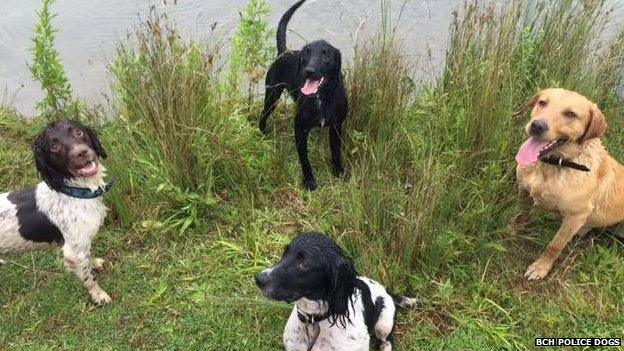
Billy and some of the other recruits chase their tennis balls into a lake after a training session
"The dogs are such a valuable tool in today's policing world," Sgt Matt Spinks says.
"They're very efficient in the way they work and take the place of maybe a whole search team of police officers."
PC Caz Murphy handles German Shepherd Otto as well as sniffer dog Billy
Explosive talent
Specialist sniffer dog Diesel leads a team of three - his handler and two armed officers - in his hunt for explosives at Luton Airport.
During the summer, the airport deals with about 45,000 passengers a day and the police search dogs play an important role in keeping it secure.
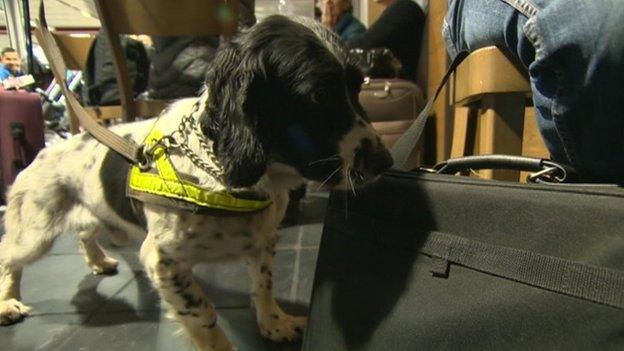
Diesel is taught to "freeze" if he detects a potential explosive
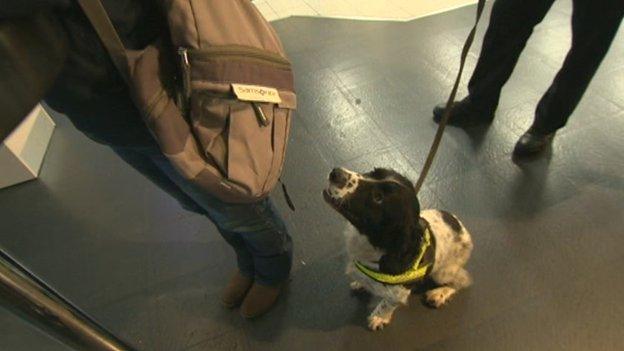
The spaniel is regularly re-trained to recognise new substances
His eyes and nose can be one of the most effective weapons in the fight against terrorism, officers say.
The five-year-old spaniel can recognise 12 different types of explosives but his training is regularly updated as new substances appear.
He is trained in the same way as the other dogs in the unit, and repetitively rewarded with a tennis ball when he detects a substance.
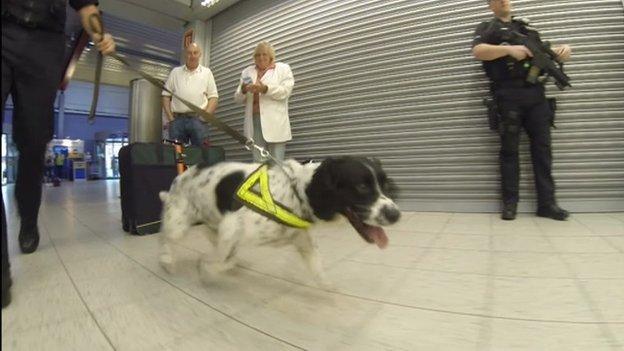
Diesel works for about 45 minutes at a time before taking a short break
When Diesel finds something he will "freeze" by the suspect bag and wag his tail.
As well as his nose, one of Diesel's most important assets is his temperament - he has been trained to deal with the noise and bustle of a busy airport environment while focusing on the task at hand.
Handler Andrew Parker says: "Obviously, working in an airport environment he's got to be a reasonably friendly dog, he's got to like people because he has a lot of interaction with them."
At the end of their working lives, some of these dogs remain with their handlers' families, while others are found new homes and a well-deserved rest.
Their success was guaranteed by their outgoing natures, playfulness and courage, but why do some fail to make the grade in the first place?
According to police dog trainers, the main failing is that some dogs are just "too kind".
- Published29 April 2015
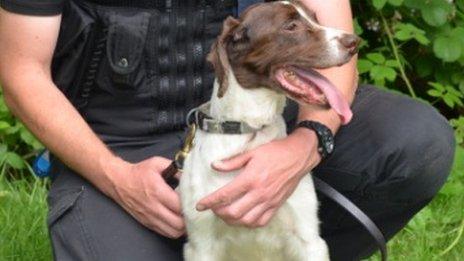
- Published29 December 2014
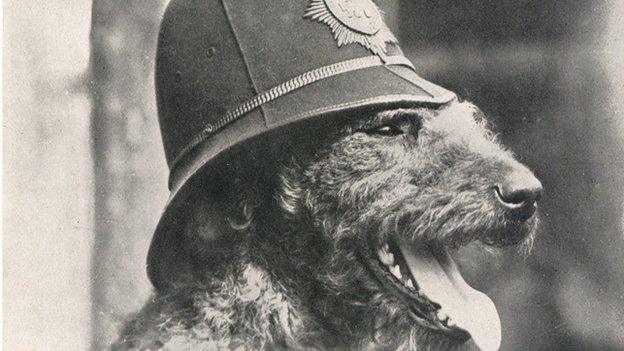
- Published28 September 2013
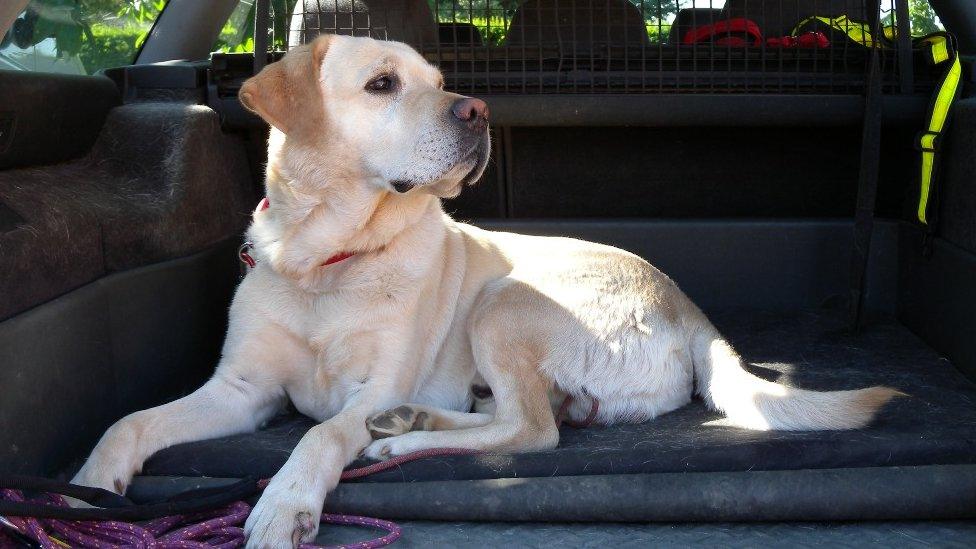
- Published18 September 2013
